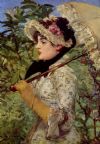|
ESL Forum:
Techniques and methods
in Language Teaching
Games, activities
and teaching ideas
Grammar and
Linguistics
Teaching material
Concerning
worksheets
Concerning
powerpoints
Concerning online
exercises
Make suggestions,
report errors
Ask for help
Message board
|
ESL forum >
Grammar and Linguistics > two questions
two questions
|

windflora

|
two questions
|
|
Hi, I have two questions which confused me so much. 1. Unfortunately, we.........all the preparations for the meeting by the time the participants began to arrive. a. hadn �t been able to finish b. must not have finished c. couldn �t have finished d. might not be finishing e. can �t have finished In this question i cannot decide whether it is A or C. 2. Although the candidate had been well behind in the polls earlier in the campaign, on the day of the vote, he........the election by a quite narrow four percent margin. a. may be winning b. could win c. had to win d. should have won e. was able to win Is it B or E? Please help. Thanks in advance. |
10 Jan 2013
|
|
|
|
|
|

aydin1362

|
hi, i think the answer for the first question is A
because i think we use could +have+ p.p to talk about past possibilities or options, which we didn �t choose. and also we can use it to show unreal past happenings(like third conditionals). as it happened in the past i go for A
and for the secend question i choose E
as we use could to talk about an ability somebody had in the past and we use was/were able to to talk about a specific event in the past.
|
10 Jan 2013
|
|
|

oumsalsabil

|
|
A & B are the correct answers because "could"is used to express general ability to do sth in the past while "be able to "suggests that we are talking about an achievement ie the ability to do sth under special circumstances ( especially when there is difficulty to do it),as in the case of the condidate in the second axample who although wasn �t expected to win the elections, he did. |
10 Jan 2013
|
|
|

ironik

|
|
1. a because c indicates there was no way we could finish. a means we didn �t have enough time to finish
2. e because was able to means managed to here, whereas could doesn �t give the same meaning, its connotation is more like: it was easy and he could do it, which is not the case. |
10 Jan 2013
|
|
|

yanogator

|
|
Definitely a and e. ironik is right about why the second one isn �t b. "could" is the conditional form of "can", but "was able to" is the past form of "can" (usually). Bruce |
10 Jan 2013
|
|
|
|
|
|
|

dutchboydvh

|
|
A and E. Try not to get caught up in the mindset there is one and only one answer to a question. English is not like maths. LOL My students deal with this all the time here in Singapore. Quite often the problem is that teachers teach them that there is only one answer. Usually because they don �t want to lose face by admitting that there may be another answer that is suitable. I teach my kids that there is often more than one way to say something, and to try not to get boxed into the paradigm of "only one answer will do." This being said, i also teach them to meet the expectations of their teachers. If the teacher tells them that there is only one answer, and even if they don �t agree, learn that in that class... there is only one anwer that will satisfy THAT TEACHER. Bottom line. Cheers all. Dar |
11 Jan 2013
|
|
|
|
|